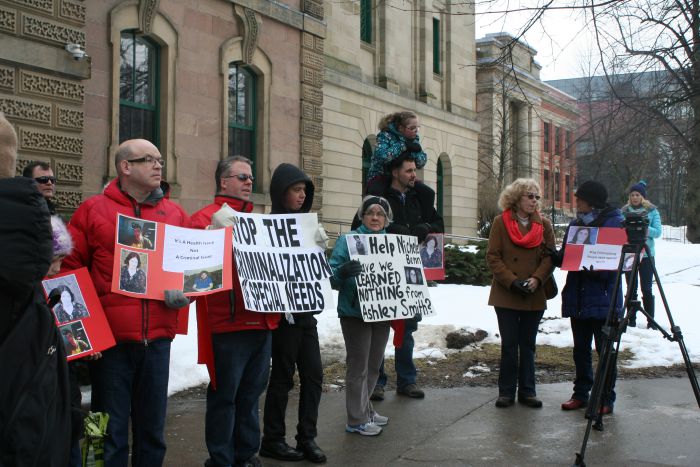
January 4, 2020
Dear Ms. Casey,
As we approach the 2020-21 provincial budget, I write on behalf of Nova Scotians with developmental disabilities and Autism Spectrum Disorder and their families to urge the government to fulfil its commitments to create community based, person-centred supported housing capacity for our population.
This is the central goal of the Roadmap for Transforming the Nova Scotia Services to Persons with Disabilities Program – aptly titled CHOICE, EQUALITY AND GOOD LIVES IN INCLUSIVE COMMUNITIES. This implementation plan to transform the Disability Support Program was jointly developed in 2013 by community and government to address and eliminate the growing waitlists for community-based homes and Nova Scotia’s disproportionate reliance on institutional facilities.
The Roadmap was a response to Canada’s ratification in 2010 of the United Nations Convention on the Rights of Persons with Disabilities. The UN Convention recognizes “the equal right of all persons with disabilities to live in the community” with “access to a range of in-home, residential and other community support services…necessary to support living and inclusion in the community”.
The current government adopted the Roadmap Report and a 10-year time frame for significantly increasing community-based supported living options while decreasing reliance on large institutions. So far, however, the allocation of resources from government needed to create community capacity has been woefully inadequate.
Wait lists for services continue to grow – from 1100 in 2015 to 1300 in 2017 to nearly 1500 last year. This is because the badly needed investments by government have not been forthcoming.
The bulk of the wait list is made up of those seeking a small-option home (four or fewer residents) or independent living support. In response to the need for hundreds of small-option (community) placements, the government has so far committed to only eight small-option homes across the province to serve about 30 residents. The first four of those homes were promised in the 2016 budget, a second batch of four was announced in budget 2017 and the same eight-home package was reiterated in budget 2018. The budget of 2019 included no money for new homes.
The absence of any new investment in community home capacity last year was doubly disappointing in light of the Emerald Hall Human Rights Inquiry that had weeks earlier found the government had clearly violated the human rights of three Nova Scotians for many years by failing to provide the resources necessary to allow them to live in community, not locked away.
The lack of action on this file has reached crisis proportion.
In April of 2019, a rally and press conference at Province House and an open letter to the Premier called on the government to fulfill its promises to meet its ten-year time frame for emptying institutions, clearing waitlists and creating community homes capacity by 2023. Over 100 organizations and 40 individuals signed this landmark letter. I have attached it for your benefit.
See also: Nova Scotians with disabilities want community-based living supports now
In May, the UN Special Rapporteur on the Rights of Persons with Disabilities visited Canada (and Halifax) and reported we still lag far behind in the implementation of its obligations under the Convention of the Rights of Persons with Disabilities.
In April and October, Autism Nova Scotia hosted two Supported Housing conferences to draw attention to this steadily worsening problem with supportive housing – and talk solutions. Hundreds of family members, first voice, advocates, service deliverers, civil servants came together to share their knowledge, experience and commitment to creating the kinds of supported housing choices needed.
But it will not happen without the significant financial investment promised by the provincial government to address this crisis. Eight homes are clearly not enough.
In 2018, Community Homes Action Group (CHAG) called for an investment in at least 25 new small option homes a year over the next three years. We reiterate that request today. This would mean an increase of 75 new supportive living homes across the province within 3 years thereby meeting the needs of up to 300 people with disabilities currently on waitlists and living in inappropriate environments.
Building on the growing needs in our province, we also request that the Independent Living Support (ILS) program see a significant investment in this year’s budget to support the more than 400 people currently on the waitlist.
These two financial commitments would send a clear message that government is serious about their promises made in the 2013 Roadmap to Nova Scotians with disabilities and their families. The United Nations Convention on the Rights of Persons with Disabilities recognizes the equal rights of all persons with disabilities to live good lives in inclusive communities. It is time for Nova Scotia to also commit fully to meeting that goal.
Wendy Lill, Chair, Community Homes Action Group
Community Homes Action Group
A HOME IS A HUMAN RIGHT FOR PEOPLE WITH DISABILTIES



